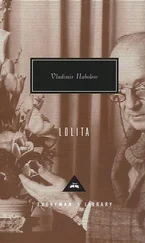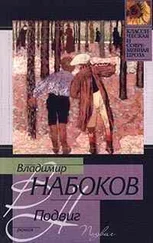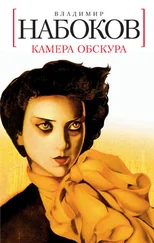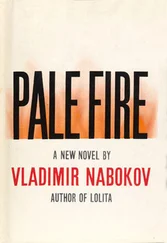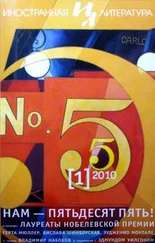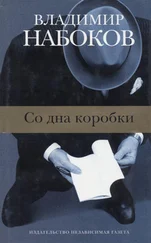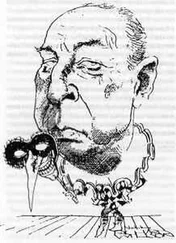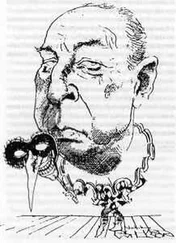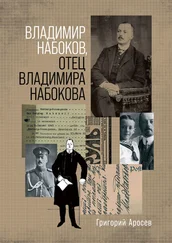Владимир Набоков - [Proofed to line 1994]
Здесь есть возможность читать онлайн «Владимир Набоков - [Proofed to line 1994]» — ознакомительный отрывок электронной книги совершенно бесплатно, а после прочтения отрывка купить полную версию. В некоторых случаях можно слушать аудио, скачать через торрент в формате fb2 и присутствует краткое содержание. Жанр: Классическая проза, на английском языке. Описание произведения, (предисловие) а так же отзывы посетителей доступны на портале библиотеки ЛибКат.
- Название:[Proofed to line 1994]
- Автор:
- Жанр:
- Год:неизвестен
- ISBN:нет данных
- Рейтинг книги:3 / 5. Голосов: 1
-
Избранное:Добавить в избранное
- Отзывы:
-
Ваша оценка:
- 60
- 1
- 2
- 3
- 4
- 5
[Proofed to line 1994]: краткое содержание, описание и аннотация
Предлагаем к чтению аннотацию, описание, краткое содержание или предисловие (зависит от того, что написал сам автор книги «[Proofed to line 1994]»). Если вы не нашли необходимую информацию о книге — напишите в комментариях, мы постараемся отыскать её.
[Proofed to line 1994] — читать онлайн ознакомительный отрывок
Ниже представлен текст книги, разбитый по страницам. Система сохранения места последней прочитанной страницы, позволяет с удобством читать онлайн бесплатно книгу «[Proofed to line 1994]», без необходимости каждый раз заново искать на чём Вы остановились. Поставьте закладку, и сможете в любой момент перейти на страницу, на которой закончили чтение.
Интервал:
Закладка:
"Nay, sir" [said Shade, refolding a leg and slightly rolling in his armchair as wont to do when about to deliver a pronouncement] "there is no resemblance at all. I have seen the King in newsreels, and there is no resemblance. Resemblances are the shadows of differences. Different people see different similarities and similar differences."
Good Netochka, who had been looking singularly uncomfortable during this exchange, remarked in his gentle voice how sad it was to think that such a "sympathetic ruler" had probably perished in prison.
A professor of physics now joined in. He was a so-called Pink, who believed in what so-called Pinks believe in (Progressive Education, the Integrity of anyone spying for Russia, Fall-outs occasioned solely by US-made bombs, the existence in the near past of a McCarthy Era, Soviet achievements including Dr. Zhivago, and so forth): "Your regrets are groundless" [said he]. "That sorry ruler is known to have escaped disguised as a nun; but whatever happens, or has happened to him, cannot interest the Zemblan people. History has denounced him, and that is his epitaph."
Shade: "True, sir. In due time history will have denounced everybody. The King may be dead, or he may be as much alive as you and Kinbote, but let us respect facts. I have it from him [pointing to me] that the widely circulated stuff about the nun is a vulgar pro-Extremist fabrication. The Extremists and their friends invented a lot of nonsense to conceal their discomfiture; but the truth is that the King walked out of the palace, and crossed the mountains, and left the country, not in the black garb of a pale spinster but dressed as an athlete in scarlet wool."
"Strange, strange," said the German visitor, who by some quirk of alderwood ancestry had been alone to catch the eerie note that had throbbed by and was gone.
Shade [smiling and massaging my knee]: "Kings do not die - they only disappear, eh, Charles?"
"Who said that?" asked sharply, as if coming out of a trance, the ignorant, and always suspicious, Head of the English Department.
"Take my own case," continued my dear friend ignoring Mr. H. "I have been said to resemble at least four people: Samuel Johnson; the lovingly reconstructed ancestor of man in the Exton Museum; and two local characters, one being the slapdash disheveled hag who ladles out the mash in the Levin Hall cafeteria."
"The third in the witch row," I precised quaintly, and everybody laughed.
"I would rather say," remarked Mr. Pardon - American History - "that she looks like Judge Goldsworth" ("One of us," interposed Shade inclining his head), "especially when he is real mad at the whole world after a good dinner."
"I hear," hastily began Netochka, "that the Goldsworths are having a wonderful time -"
"What a pity I cannot prove my point," muttered the tenacious German visitor. "If only there was a picture here. Couldn't there be somewhere -"
"Sure," said young Emerald and left his seat.
Professor Pardon now spoke to me: "I was under the impression that you were born in Russia, and that your name was a kind of anagram of Botkin or Botkine?"
Kinbote: "You are confusing me with some refugee from Nova Zembla" [sarcastically stressing the "Nova'"].
"Didn't you tell me, Charles, that kinbote means regicide in your language?" asked my dear Shade.
"Yes, a king's destroyer," I said (longing to explain that a king who sinks his identity in the mirror of exile is in a sense just that).
Shade [addressing the German visitor]: "Professor Kinbote is the author of a remarkable book on surnames. I believe [to me] there exists an English translation?"
"Oxford, 1956," I replied.
"You do know Russian, though?" said Pardon. "I think I heard you, the other day, talking to - what's his name - oh, my goodness" [laboriously composing his lips].
Shade: "Sir, we all find it difficult to attack that name" [laughing].
Professor Hurley: "Think of the French word for 'tire': punoo."
Shade: "Why, Sir, I am afraid you have only punctured the difficulty" [laughing uproariously].
"Flatman," quipped I. "Yes," I went on, turning to Pardon, "I certainly do speak Russian. You see, it was the fashionable language par excellence, much more so than French, among the nobles of Zembla at least, and at its court. Today, of course, all this has changed. It is now the lower classes who are forcibly taught to speak Russian."
"Aren't we, too, trying to teach Russian in our schools?" said Pink.
In the meantime, at the other end of the room, young Emerald had been communing with the bookshelves. At this point he returned with the T-Z volume of an illustrated encyclopedia.
"Well, said he, "here he is, that king. But look, he is young and handsome" ("Oh, that won't do," wailed the German visitor). "Young, handsome, and wearing a fancy uniform," continued Emerald. "Quite the fancy pansy, in fact."
"And you," I said quietly, "are a foul-minded pup in a cheap green jacket."
"But what have I said?" the young instructor inquired of the company, spreading out his palms like a disciple in Leonardo's Last Supper.
"Now, now," said Shade. "I'm sure, Charles, our young friend never intended to insult your sovereign and namesake."
"He could not, even if he had wished," I observed placidly, turning it all into a joke.
Gerald Emerald extended his hand - which at the moment of writing still remains in that position.
Lines 895-899: The more I weigh... or this dewlap
Instead of these facile and revolting lines, the draft gives: 895 I have a certain liking, I admit, For Parody, that last resort of wit: "In nature's strife when fortitude prevails The victim falters and the victor fails."
899 Yes, reader, Pope
Line 920: little hairs stand on end
Alfred Housman (1859-1936), whose collection The Shropshire Lad vies with the In Memoriam of Alfred Tennyson (1809-1892) in representing, perhaps (no, delete this craven "perhaps"), the highest achievement of English poetry in a hundred years, says somewhere (in a foreword?) exactly the opposite: The bristling of thrilled little hairs obstructed his barbering:, but since both Alfreds certainly used an Ordinary Razor, and John Shade an ancient Gillette, the discrepancy may have been due to the use of different instruments.
Line 922: held up by Our Cream
This is not quite exact. In the advertisement to which it refers, the whiskers are held up by a bubbly foam, not by a creamy substance.
After this line, instead of lines 923-930, we find the following, lightly deleted, variant: All artists have been born in what they call A sorry age; mine is the worst of all: An age that thinks spacebombs and spaceships take A genius with a foreign name to make, When any jackass can rig up the stuff; An age in which a pack of rogues can bluff The selenographer; a comic age That sees in Dr. Schweitzer a great sage.
Having struck this out, the poet tried another theme, but these lines he also canceled: England where poets flew the highest, now Wants them to plod and Pegasus to plough; Now the prosemongers of the Grubby Group, The Message Man, the owlish Nincompoop And all the Social Novels of our age Leave but a pinch of coal dust on the page.
Line 929: Freud
In my mind's eye I see again the poet literally collapsing on his lawn, beating the grass with his fist, and shaking and howling with laughter, and myself, Dr. Kinbote, a torrent of tears streaming down my beard, as I try to read coherently certain tidbits from a book I had filched from a classroom: a learned work on psychoanalysis, used in American colleges, repeat, used in American colleges. Alas, I find only two items preserved in my notebook: By picking the nose in spite of all commands to the contrary, or when a youth is all the time sticking his finger through his buttonhole... the analytic teacher knows that the appetite of the lustful one knows no limit in his phantasies.
Читать дальшеИнтервал:
Закладка:
Похожие книги на «[Proofed to line 1994]»
Представляем Вашему вниманию похожие книги на «[Proofed to line 1994]» списком для выбора. Мы отобрали схожую по названию и смыслу литературу в надежде предоставить читателям больше вариантов отыскать новые, интересные, ещё непрочитанные произведения.
Обсуждение, отзывы о книге «[Proofed to line 1994]» и просто собственные мнения читателей. Оставьте ваши комментарии, напишите, что Вы думаете о произведении, его смысле или главных героях. Укажите что конкретно понравилось, а что нет, и почему Вы так считаете.

